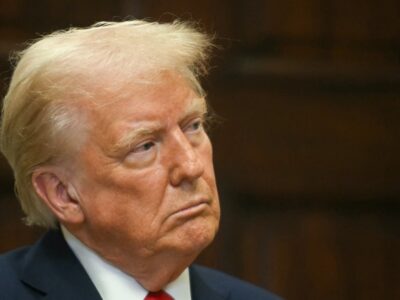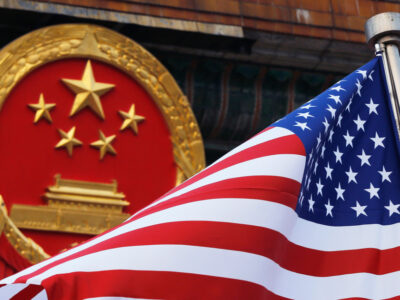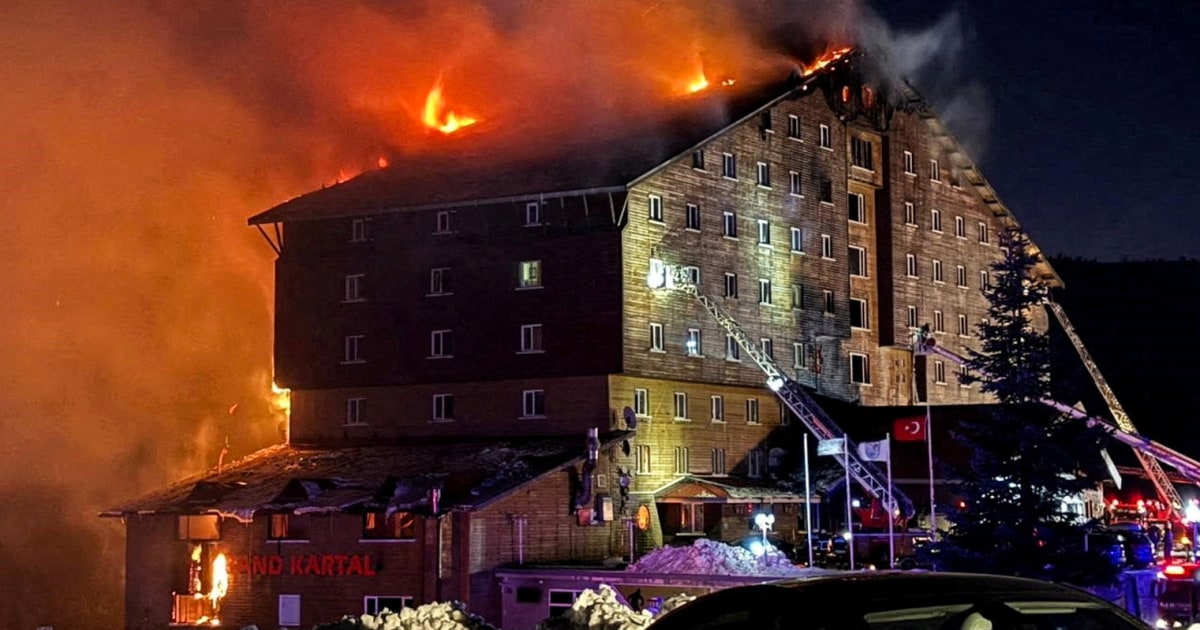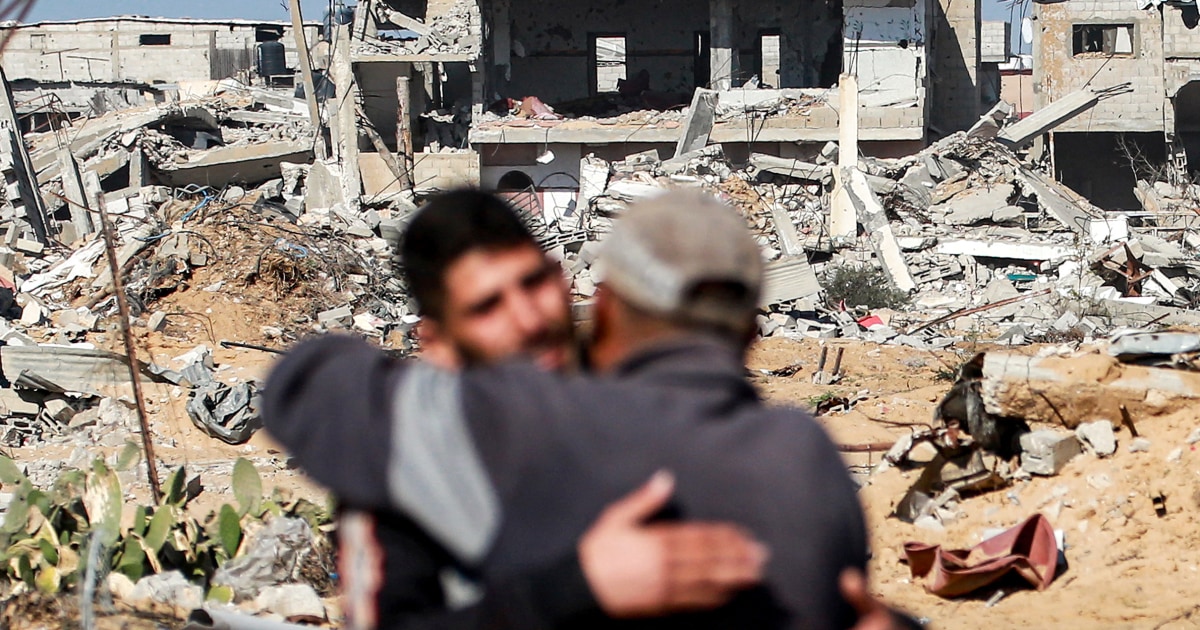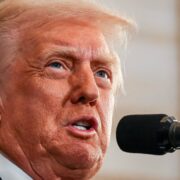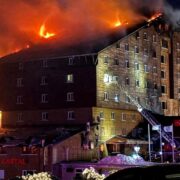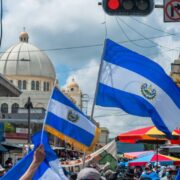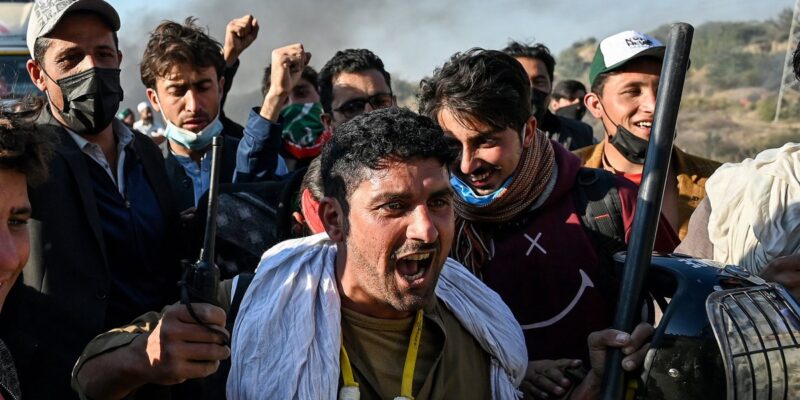
PESHAWAR, Pakistan — The capital of Pakistan was locked down Monday as supporters of jailed former leader Imran Khan marched on the city to demand his release. It is the latest upheaval to hit this nuclear-armed United States ally after days of deadly clashes between rival sectarian groups.
That violence between warring Sunni and Shia Muslim factions was halted with an uneasy truce Sunday, though reports of skirmishes continued to emerge from the country’s often-unruly, mountainous northwest.
Just as that crisis cooled, however, authorities in the capital Islamabad were scrambling to block highways with shipping containers and restricting internet coverage, as police began to clash with those backing Khan, a former cricket icon turned ex-prime minister. Protesters and police traded accusations of brutality, with the police saying one of their number had been killed and more than 70 injured.
Khan remains a popular figure in this Muslim-majority country of more than 230 million people. That’s despite his imprisonment a year ago on some 150 charges including corruption, leaking state secrets and violating Islamic law. Supporters say these are trumped-up allegations, part of a wider effort to keep him and his political party, Pakistan Tehreek-e-Insaf (PTI) off the ballot in elections earlier this year — and out of power.
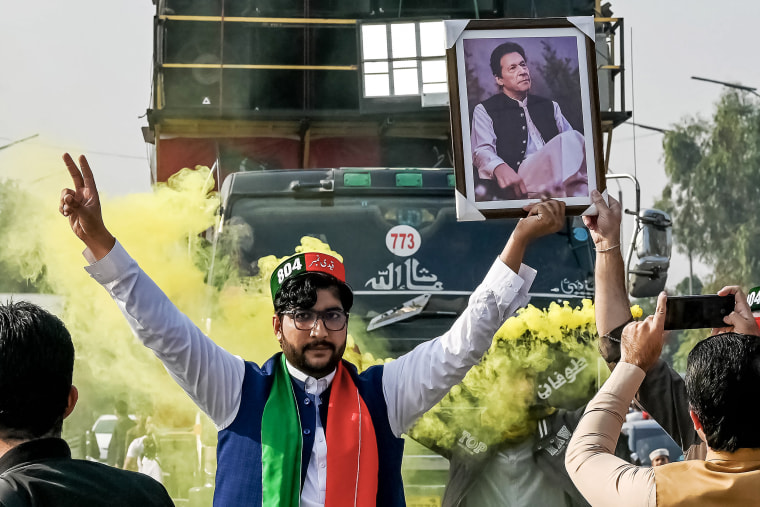
Supporters of Imran Khan during a rally in Swabi on Sunday.Abdul Majeed / AFP – Getty Images
These backers organized what they called a “final call” or a “long march” on Islamabad on Monday, with officials saying the convoy of vehicles numbered 9,000-10,000 supporters. Video posted by the PTI showed marchers, led by Khan’s wife, Bushra Bibi, dancing, drumming and waving flags as they closed in on the capital. Fleets of cars, trucks and motorbikes spanned the road, many of them flying the red and green PTI flag.
“We will not return till our leader Imran Khan is released from prison,” senior PTI politician Shaukat Ali Yousafzai told NBC News, adding that police had been using tear gas, causing injuries to some PTI supporters.
Responding to these allegations, the chief minister of the Punjab region, Maryam Nawaz Sharif, said police deployed to stop the protesters were unarmed, and in turn accused the marchers of wielding shotguns, knives and teargas shells.
Punjab information minister Uzma Bukhari said one officer had been killed and more than 70 injured in the clashes, some of them seriously, as police released two pictures of officers it said had been hospitalized in the violence.
Pakistan Prime Minister Shehbaz Sharif condemned the police officer’s alleged killing later Monday.
The military-backed government said the protest was merely designed to disrupt a visit by Belarusian President Alexander Lukashenko.
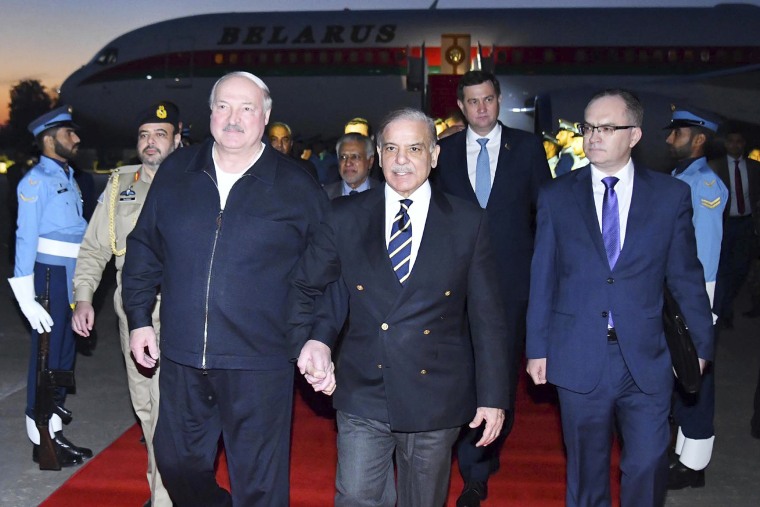
Belarusian President Alexander Lukashenko, left, upon his arrival at an airbase in Rawalpindi on Monday.Press Information Department via AP
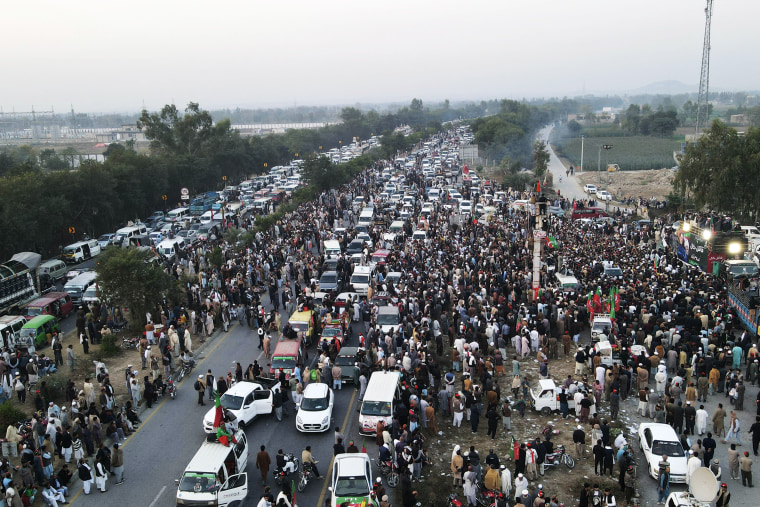
Supporters of Khan also gathered to demand his release in Swabi, northwestern Pakistan on Sunday.Abdul Majeed / AFP via Getty Images
“Whenever there is a high level and close ally visit to Pakistan, why does PTI become adamant in doing protests and agitations?” the country’s commerce minister, Jamal Khan, posted to X, a platform which is banned in the country. “These visits benefit us in a overall economic enhancement and contribute to our overall foreign policy stance.
The government responded by locking down the capital, placing shipping containers across major highways and leading to social media users calling the city “Containeristan.”
The Associated Press said ambulances and other emergency vehicles were seen turning around after being obstructed by these makeshift roadblocks. Yousafzai, the senior PTI leader, said party workers had successfully removed some of these containers from the highway between the capital and Peshawar.
Meanwhile officials e closed all schools and shut down cellphone internet access and Wi-Fi services in parts of the country considered a “security concern.”
The PTI responded to these restrictions by sharing a link to BBC coverage of the story.
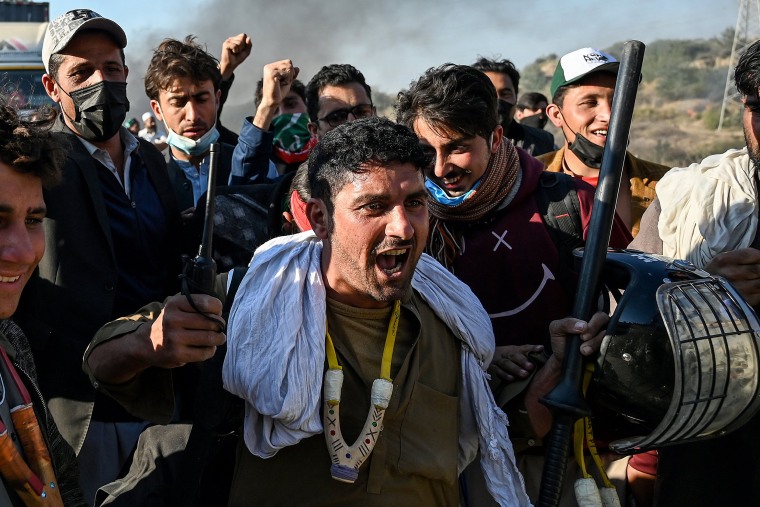
Supporters of Pakistan’s former prime minister Imran Khan cheers as they march toward Islamabad on Monday.Aamir Qureshi / AFP – Getty Images
“While our local compromised media has completely blacked out the largest mobilization in the history of Pakistan, international media is reporting live on all the developments of this historic march,” it posted.
A truce in Kurram
The chaos comes one day after the government mediated a cease-fire between rival Shiite and Sunni Muslim militant groups after days of clashes near the Afghan border that killed at least 65 people.
The cease-fire in the sectarian-riven Kurram tribal district is set to last seven days, Mohammad Ali Saif, a local government spokesman and member of the delegation that negotiated the deal, told NBC News.
“It is a breakthrough as the situation was quite explosive after clashes and human casualties from both sides,” Saif said, adding that the factions agreed to exchange prisoners and the bodies of those killed.
The groups have been engaged in a decadeslong land dispute in the region. These tensions flared last week after unidentified gunmen opened fire on a convoy of civilian vehicles passing through the region.
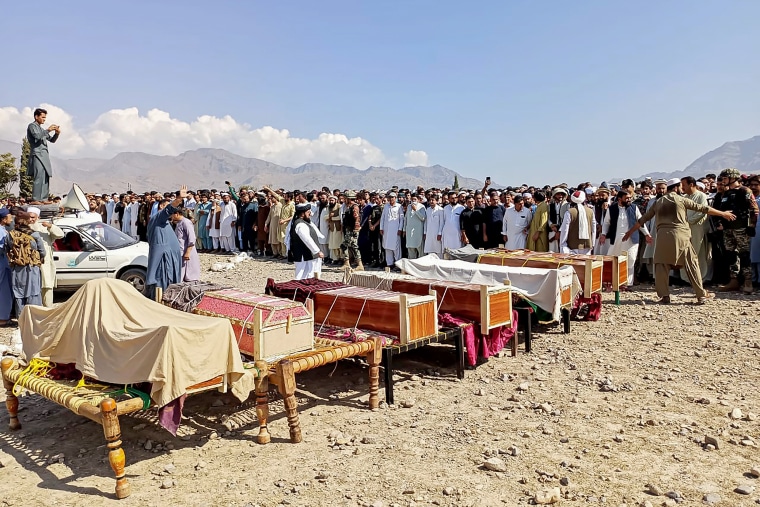
Sunni Muslims during a funeral for victims killed in previous sectarian clashes in northwest Pakistan last month.Dilawer Khan / AFP via Getty Images
All of the 45 killed in that incident, including eight women and five children, were from the Shiite community. This sparked outrage, with hundreds of men from the Shiite community storming local villages, killing and kidnapping a number of people, and setting fire to gas stations and shops, according to the local government and police.
The violence prompted the government to dispatch the delegation to the region, which is 150 miles from Islamabad and closer to the Afghan capital Kabul.
“Both sides had serious reservations about the insecurity and deteriorating law and order situation, lack of enough police force etc,” Saif said. “We carefully listened to them and assured them of full cooperation in resolving all genuine issues to restore peace and harmony in the tribal district.”
Small groups were still attacking each other’s villages in the rural areas, Saif added, but he said that he hoped that they too would soon stop fighting.
Mushtaq Yusufzai reported from Peshawar, Pakistan, and Alexander Smith from London.

